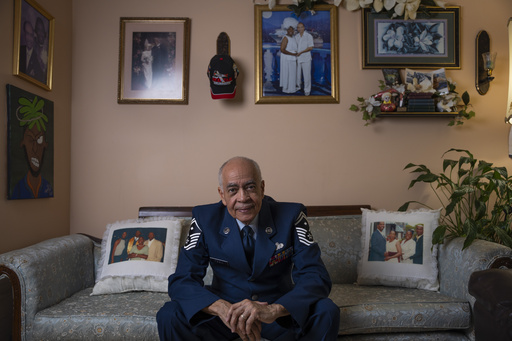
In Washington, three retirees—Evelyn Seabrook, Glenn Flood, and Calvin Stevens—represent a generation of Black Americans who utilized military and federal service to achieve their aspirations. Despite facing challenges, they believe their experiences in these sectors provided them with more opportunities than the private sector, where racial bias and favoritism were prevalent during their career beginnings. Seabrook emphasized her appreciation for her federal service role, indicating that it significantly enhanced her personal life.
With over 120 years of combined service, the trio has actively participated in the National Active and Retired Employees Association. They are currently affected by ongoing changes that have emerged during President Donald Trump’s second term, which began with a reduction of programs focused on diversity, equity, and inclusion. This shift has also been marked by substantial layoffs within the federal workforce under Elon Musk, who has been appointed as a special adviser regarding governmental efficiency and seeks to dismantle various agencies.
The retirees expressed concern over the historical significance of the federal workforce, which has acted as a crucial entry point into the middle class for minorities, particularly Black Americans. When entering military and government roles decades ago, their focus was primarily on eliminating the discrimination that had previously marginalized people of color from many workplaces.
During Lyndon Johnson’s presidency, efforts to combat employment discrimination through legislation and executive actions expanded access to positions within the U.S. Postal Service, military roles, and other federal jobs, offering a pathway to executive-level careers for Black professionals. Marc Morial, the president and CEO of the National Urban League, noted that the advancement within federal civilian employment was significantly quicker and more extensive compared to the slow progress seen in private-sector hiring practices.
As a result, the Black middle class experienced notable growth, especially in metropolitan areas such as Washington, D.C., where individuals often began in lower-level positions and gradually ascended through dedication and performance. Morial pointed out that at one time, Washington, D.C., boasted the highest median income for African Americans across the United States.
Presently, the federal government stands as the largest employer in the nation, encompassing around 3 million workers, with nearly 19% identifying as Black Americans, almost aligning with the demographic representation of the population as a whole.
Reflecting on her career, Seabrook, now 80, began working with the Social Security Administration in New York City in 1966, dedicating over 39 years to federal service. She remarked on the irony of diversity, equity, and inclusion (DEI) discourse today, highlighting that she didn’t benefit from affirmative action or targeted recruitment during her start in the workforce. Instead, her promotions were based on performance without considerations of ethnicity.
Flood, 78, a former Navy officer, echoed similar sentiments about his career in federal service. He underscored how federal employment allowed people of color to showcase their talents and capabilities, contrasting the current unsettling atmosphere concerning job security and departmental recognition among minorities. Given his history, Flood expressed pride in his civil service contribution and the stability it provided for his family.
Stevens, 77, shared his journey spanning 31 years in the Air Force followed by a long tenure at the General Services Administration. He recounted the significance of mentorship in navigating his career and emphasized the need for targeted recruitment from Historically Black Colleges and Universities. While aware that some may have perceived him as a product of affirmative action, Stevens insisted that he met the necessary qualifications and continuously sought education and experience to advance his career.
In conclusion, Stevens lamented the current threats to the civil service system, recognizing it as a vital source of middle-class opportunities for many individuals. He noted that irrespective of educational backgrounds, many viewed public sector jobs as secure pathways with equitable opportunities for advancement.

